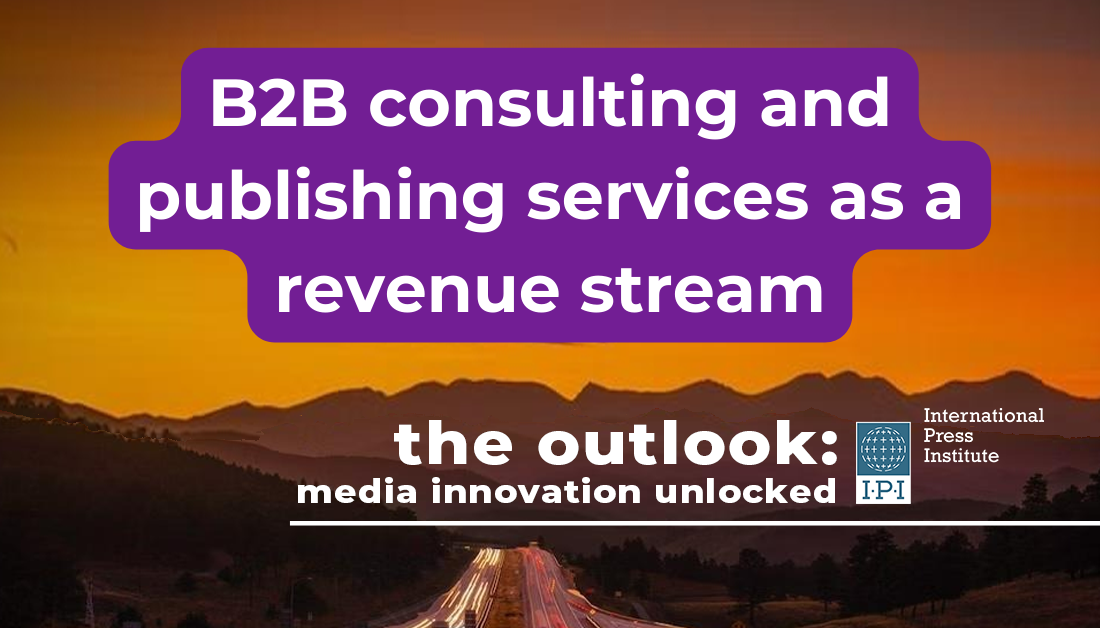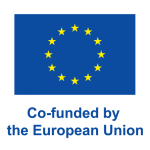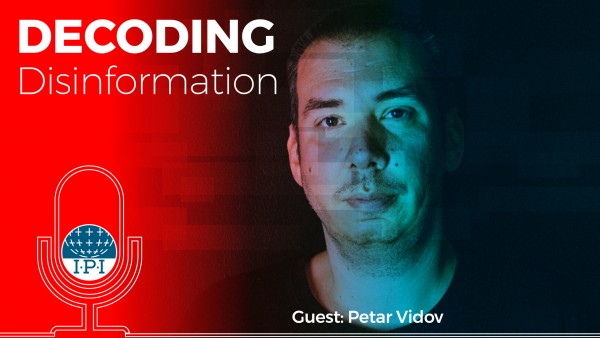This text comes from IPI’s newsletter The Outlook. Click here to sign up to receive future editions direct to your inbox.
In this edition of The Outlook, IPI’s media innovation newsletter, we take a look at another revenue stream that’s under-discussed in the news industry, and explore how two newsrooms have made it work for them.
The challenge: A large portion of your audience isn’t going to pay for news
A Reuters Institute for the Study of Journalism report published in late September shows that the rise in people paying for news is beginning to level off in many places.
Reader revenue can be a challenge for a range of reasons: a fledgling subscription culture in some countries, lower levels of disposable income among the target audience, or lower public engagement with legacy news to name just a few.
For many organizations, getting readers to pay has never been the goal: the focus might be simply on ensuring wider access to reliable information.
But whatever your relationship to reader revenue, a strong, diversified revenue model is always an advantage. On the path to sustainability, any forms of regularly recurring revenue are an important stepping stone.
The solution: B2B consulting and publishing services as a revenue stream
News and information are not the only thing newsrooms have to offer. They can also offer access to a certain audience (advertising/event sponsorship), community (membership/events) or expertise (consulting services). We’ll focus on the latter in this newsletter, because it’s easy for those working within an organization to overlook their own expertise.
One option is to monetize expertise in the way you work or tools you use. If your organization has developed strong skills in content production, and perhaps a strong network of skilled people, this could be valuable to organizations in fields outside journalism.
Puma Podcasts in the Philippines (a country with a lower levels of willingness to pay for news) has done just that. Consulting was part of the business model from the start, Executive Editor Roby Alampay told IPI’s World Congress earlier this year. In his words, the team “over-capacitated and then sold that capacity” – producing podcasts for other media organizations, foundations and companies as well as offering training.
The other option is using your expertise in the topic and/or the audience you cover. This might be a B2B publication offering consulting to clients in their industry, or a niche media organization sharing their expertise and knowledge of their audience (of course, if using audience data for consulting, news media should be transparent with their audience and choose consulting client projects that are also in the audience’s interest).
One example comes from andererseits in Austria, the independent newsroom covering disability and society. Lukas Burnar told IPI that they found consulting opportunities by accident at first: the team was invited to panels but was unable to attend as the events were not accessible. When they raised this with event organizers, they were offered paid consulting on inclusivity.
“We know how to collaborate between team members who have a disability and those who do not, and we know how to organize events and structure workflows in a way that is accessible,” he explains. These skills have become intuitive to the andererseits team, but they are valuable assets.
One caveat: You’re still a news organization.
Unlike Puma Podcasts, the andererseits team made a deliberate choice to keep consulting as a subsidiary revenue stream.
This is because of the “opportunity cost” of the small team spending time on something that does not contribute to their main business model – time taken away from their reporting or community engagement. The team’s sharp focus on only the activities that serve their core model is something we’ve covered before in The Outlook.
But when it works, consulting can have multiple benefits. As well as contributing to revenue, consulting opportunities can give andererseits positive PR and chances to network, and more importantly, the right opportunities further their organizational mission of fostering inclusion, making it a win-win.
The Takeaway: Consider whether there are people besides your core audience who would benefit from your expertise. Maybe start by sending a survey or running a focus group with a few of your current clients or advertisers to learn more about their needs.
Then, ask yourself how this would fit into your core business model – and whether it would also take anything away from it.
News from IPI’s Media Sustainability Team
Sign up to join IPI’s next virtual newsroom visit, when we’re heading (via Zoom) to Lebanon. Independent newsroom The Public Source will take us behind the scenes of their investigative work and explain how they maintain independence in a highly polarized environment.
We were also delighted to receive almost 150 applications for the Local News Accelerator, IPI’s latest media innovation and sustainability programme. Stay tuned for a public announcement of the successful newsrooms this week. We will also share insights from the teams throughout the three-month accelerator.
Funding opportunities for media
- Independent media in the western Balkans can apply for funding of up to €25,000 from the Deutsche Gesellschaft für Internationale Zusammenarbeit (GIZ) to support them in developing a collaborative media project.
- Full and partial needs-based scholarships are available for the newly launched News Product Management Certification, a part-time training programme aimed at mid to senior-level news professionals to develop
product strategy, technical expertise, and change management skills. - Media outlets in Kenya, Uganda, Tanzania, Rwanda and South Sudan can apply for grants to produce investigative reporting projects into environmental crime, from the Earth Journalism Network.
- Pairs of journalists, journalism students, artists, and professional photographers from Algeria, Egypt, Jordan, Lebanon, Libya, Morocco, Palestine, Syria, and Tunisia are eligible to enter the TANDEM Media Awards, which will award prizes of €3,000 to four winning pairs whose work highlights EU-funded projects or cultural initiatives in the Southern Neighbourhood.
IPI’s media innovation and sustainability work is made possible with support from the European Union, Friedrich Naumann Foundation and ERSTE Foundation.




